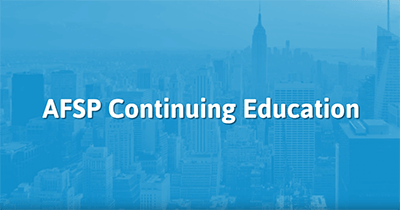2021 Annual Federal Tax Refresher Course
-
6 Hour Course
- 4.2 40 Reviews
- $50.00
This 6 hour law course is for tax professionals who must complete 18 hours of continuing education for 2021 in order to help individuals file their 2020 tax returns. There are three core parts to this course.
Domain 1 provides dollar amount and rate inflations for the 2020 tax year with walk-through examples of how to figure some of these related calculations. Due to RP 2019-44 being so lengthy, a good hour of the class is dedicated to those adjustments. Special attention is given to explaining concepts, not just providing the updated numbers; context is essential. A few minor notes relating to the CARES Act have been included, where relevant. The list of tax extenders at the end examines qualifications and limitations for each.
The second domain in the series is the longest of the three because it returns to the basics and ensures students understand key concepts they'll continue to work with. Taxability of earnings starts us out with what constitutes employee compensation. Schedules A through D and supplementary forms, topics, and instructions are all reviewed. Though not intended to be exhaustive, these walk-throughs should serve tax preparers well in navigating any revisions and calculations. Of particular interest will be the changes relating to retirement income limits and the repeal of the alimony deduction. Modern influences of virtual currency and disaster losses find their way into our discussion. Itemized deductions and tax credit eligibility will require a full hour. Then we'll end with an overview of key topics.
Finally, Domain 3 explores warning signs of tax-related identity theft, precautions to mitigate risk, and what to do if a client or tax preparer has suspicions about information abuse. E-file requirements, the purpose and expiration date calculation for ITINs, and the requirements of the Annual Filing Season Program are also covered. Penalties for failure to comply with one's duties as a tax professional are given context.
Videos, images, flowcharts, and tables are used where possible to promote comprehension. A 100 question final exam will wrap up the course.
Background on the AFTR Course
If you participate in the IRS’s Annual Filing Season Program (AFSP), you get a handful of perks. The IRS lists you in their Directory of Federal Tax Return Preparers with Credentials and Select Qualifications. Plus, you get a way to basically guarantee that you’re always up to date on the latest tax law.
To maintain your AFSP certification, though, you need to complete some continuing education each year. And for many tax professionals, that means takin an annual federal tax refresher course — or AFTR, for short.
What is the Annual Federal Tax Refresher?
The AFTR is a yearly (as its name suggests), six-hour course updating you on the latest in federal tax regulation. That includes things like dollar amount and rate inflations for the 2020 tax year in light of RP 2019-44 or changes because of the recent alimony deduction repeal. In other words, in just six hours, you’ll get caught up to speed on the key changes that could impact the way you prepare federal taxes for your clients in 2021.
AFTR Requirements
At the end of the six hours, you’ll need to take and pass an exam of 100 questions. But don’t worry. You’ll learn everything you need to know to pass during the annual federal tax refresher course, and you only need a 70% to pass. Plus, the test is multiple choice.
To get credit for completing the course, you’ll be best off if you have a PTIN. If you don’t, you can get a PTIN and retroactively apply the AFTR course completion to it. But to do so, you’ll need to contact your AFTR course provider and ask them to resubmit your record with the new PTIN number attached.
All told, if you participate in the AFSP, you’ll probably need the annual federal tax refresher course. If you’re required to take the AFTR course to maintain your AFSP enrollment, you need to finish your six hours by midnight on December 31 each year.
All this said, even if you’re not under any AFTR requirements, this course can be a concise way to stay in-the-know about the latest changes in the tax industry.
Who is required to take the AFTR course?
Excellent question. To put it succinctly, if you don’t specifically have an exemption (which we’ll outline next), assume that you need to complete the six hours of AFTR.
To figure out who is not exempt from AFTR course, it’s easiest to look at who is. If you’re not listed in the exemptions in the next section, assume you have AFTR requirements to maintain your AFSP status.
Who is exempt from AFTR requirements?
State-based exemptions
Oregon, California, and Maryland tax preparers, you might not be subject to AFTR requirements.
Specifically, if you’re in Oregon and are registered with the Oregon Board of Tax Practitioners, you don’t need to take the AFTR course.
If you’re in Maryland and you passed the state exam and register with the Maryland State Board of Individual Tax Preparers by the end of this year, there aren’t any AFTR requirements for you, either.
You still need 15 hours of continuing education, though. You need three tax law update CE hours, 10 federal tax law hours, and two ethics hours.
Are CTEC preparers exempt from the AFTR course?
The California Tax Education Council (CTEC) extends similar exemptions. You don’t need an AFTR course. But even though you don’t have AFTR requirements, you still need 15 hours for AFSP renewal: three tax law update hours, 10 federal tax law hours, and two ethics hours.
There’s also one more to-do for you. You need to sign the Circular 230 form, which so many California tax preparers forgot that the CTEC had to issue a special notice about it in 2016.
Organization-based exemptions
Your participation with a specific organization or your holding of a certain credential might get you off the hook for AFTR requirements.
- Registered Tax Return Preparers: If you passed the RTRP exam, you’re exempt.
- Special Enrollment Exam (SEE) Part 1: If you passed the SEE Part 1 in 2019 or 2020, you’re exempt.
- Volunteer Income Tax Assistance (VITA): If you volunteer with VITA and you pass the advanced VITA exam and have an active PTIN, you’re probably exempt.
You’re also exempt if you hold any of the following credentials:
- Accredited Tax Preparer (ATP)
- Accredited Business Accountant/Advisor credential (ABA)
- Certified Public Accountant (CPA)
- Enrolled Retirement Plan Agent (ERPA)
- Enrolled Agent (EA)
Attorneys are also exempt.
Like state-based exemptions, if you fall into an organization-based exemption or hold any of the above exempt credentials, you still need 15 hours of continuing education to maintain your AFSP enrollment. Complete three hours on tax law update, 10 federal tax law hours, and two ethics hours.
You might still choose to take the AFTR course just to keep up to date. If you do and you’re an EA, be advised that those hours won’t count toward your CE requirements.
If you don’t fall into any of the above categories, it’s safe to assume that you’ll need to complete an annual federal tax refresher course.
How do I meet AFTR requirements?
If you’re not exempt, don’t worry. Getting the six AFTR hours you need isn’t a strenuous process, and it won’t require you to take time away from your workday. But choosing a self-study AFTR course, you can work on your hours at any time that’s convenient for you.
Additionally, you can choose to take your AFTR self-study course online. Just click the “Add to Cart” button below to work on your hours from any computer, tablet, or smartphone with an internet connection. Our IRS-approved program gives busy tax professionals the convenience and ease they need to make sure AFTR requirements don’t become a big headache.
Once you complete your course, you’ll get a certificate of completion and we’ll report your hours, along with your PTIN, to the IRS within five business days.
Show Course ID: 0
- Approved By: Internal Revenue Service (IRS)
Instructor Bio

Jeremy Allen, CPA, was born and raised in Chicago, Illinois. He graduated with a Bachelor's of Science in Accounting from the University of Oregon Charles H. Lundquist College Of Business. He has been a licensed CPA in the state of Oregon since 2007. He specializes in Corporate Taxation and Planning. He enjoys working with start-up businesses, online businesses, and multi-state entities. He is an avid member of Crossfit Grants Pass. In his free time he enjoys traveling and camping with his family. Go Ducks!



